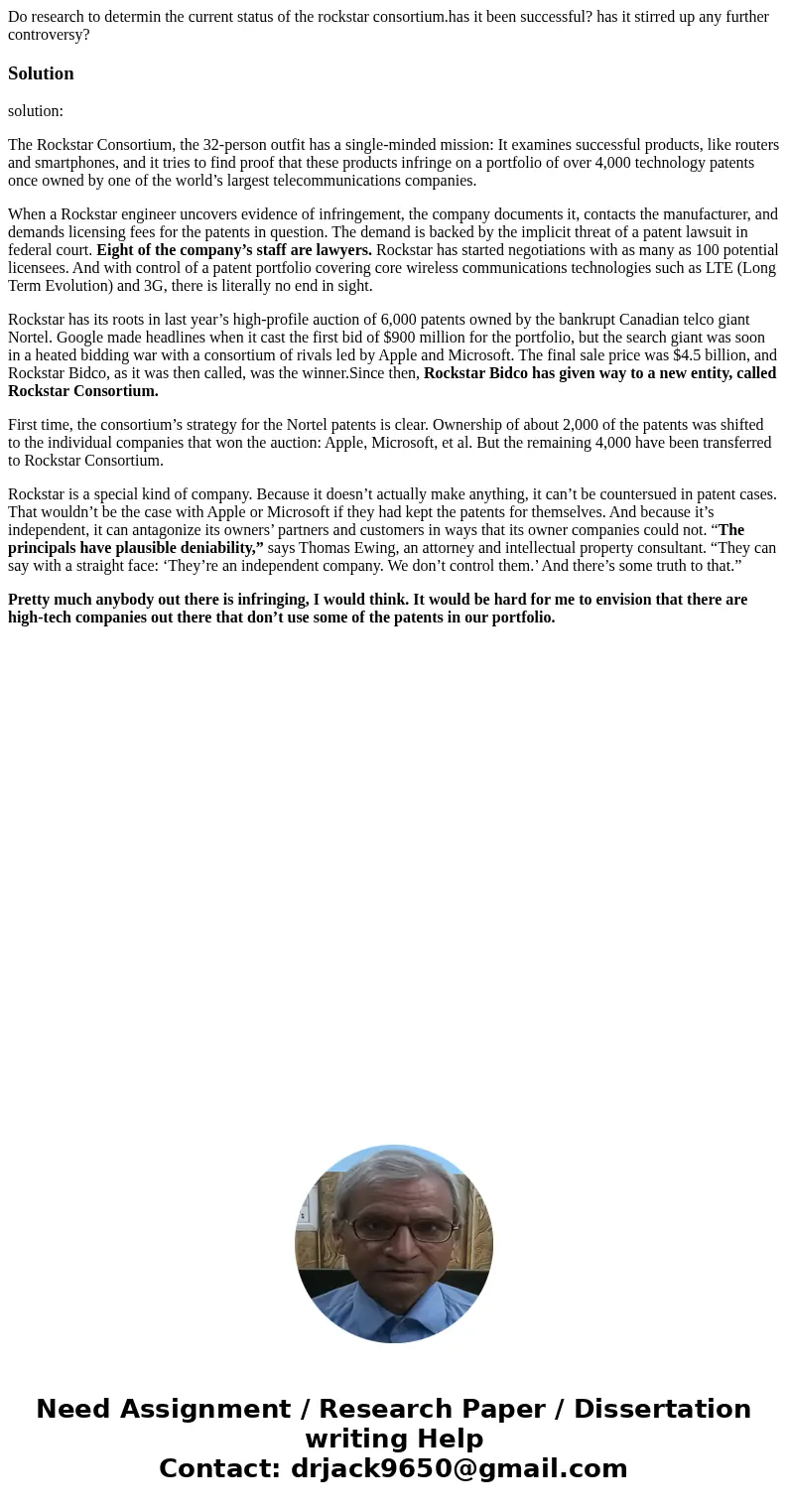Do research to determin the current status of the rockstar c
Do research to determin the current status of the rockstar consortium.has it been successful? has it stirred up any further controversy?
Solution
solution:
The Rockstar Consortium, the 32-person outfit has a single-minded mission: It examines successful products, like routers and smartphones, and it tries to find proof that these products infringe on a portfolio of over 4,000 technology patents once owned by one of the world’s largest telecommunications companies.
When a Rockstar engineer uncovers evidence of infringement, the company documents it, contacts the manufacturer, and demands licensing fees for the patents in question. The demand is backed by the implicit threat of a patent lawsuit in federal court. Eight of the company’s staff are lawyers. Rockstar has started negotiations with as many as 100 potential licensees. And with control of a patent portfolio covering core wireless communications technologies such as LTE (Long Term Evolution) and 3G, there is literally no end in sight.
Rockstar has its roots in last year’s high-profile auction of 6,000 patents owned by the bankrupt Canadian telco giant Nortel. Google made headlines when it cast the first bid of $900 million for the portfolio, but the search giant was soon in a heated bidding war with a consortium of rivals led by Apple and Microsoft. The final sale price was $4.5 billion, and Rockstar Bidco, as it was then called, was the winner.Since then, Rockstar Bidco has given way to a new entity, called Rockstar Consortium.
First time, the consortium’s strategy for the Nortel patents is clear. Ownership of about 2,000 of the patents was shifted to the individual companies that won the auction: Apple, Microsoft, et al. But the remaining 4,000 have been transferred to Rockstar Consortium.
Rockstar is a special kind of company. Because it doesn’t actually make anything, it can’t be countersued in patent cases. That wouldn’t be the case with Apple or Microsoft if they had kept the patents for themselves. And because it’s independent, it can antagonize its owners’ partners and customers in ways that its owner companies could not. “The principals have plausible deniability,” says Thomas Ewing, an attorney and intellectual property consultant. “They can say with a straight face: ‘They’re an independent company. We don’t control them.’ And there’s some truth to that.”
Pretty much anybody out there is infringing, I would think. It would be hard for me to envision that there are high-tech companies out there that don’t use some of the patents in our portfolio.

 Homework Sourse
Homework Sourse